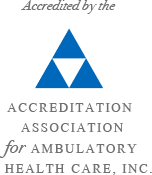How Barrett’s Esophagus Can Lead to Esophageal Cancer if Left Untreated

Do you suffer from chronic heartburn or acid reflux? You might be at risk for something more serious. Barrett’s Esophagus is a silent condition that can quietly develop into esophageal cancer if not addressed early. Understanding how this happens can help you protect your health and make informed decisions.
At Gramercy Park Digestive Disease Center (GPDDC) in New York City, our team of board-certified gastroenterologists specializes in endoscopic procedures and GI treatments, like identifying and treating Barrett’s Esophagus. With advanced training and access to tools like HALO radiofrequency ablation, we focus on preventing cancer through timely, targeted treatment.
Why GERD Can Lead to Barrett’s Esophagus
Long-term exposure to stomach acid through GERD (gastroesophageal reflux disease) can alter your esophageal lining. Over time, normal cells begin to change in color and composition. This condition is called Barrett’s Esophagus, and it’s considered a precancerous state.
What Increases the Risk of Esophageal Cancer?
Barrett’s Esophagus itself isn’t cancer, but it raises your risk for esophageal adenocarcinoma. Here's how cell damage can escalate:
- Cellular dysplasia begins: The esophageal lining develops abnormal, pre-cancerous changes.
- High-grade dysplasia follows: Damaged cells become more disorganized and dangerous.
- Cancer may develop: Without treatment, this can progress into esophageal cancer.
These stages make early detection and intervention critical for reducing cancer risk.
Signs Barrett’s Esophagus Might Be Getting Worse
You might not notice major symptoms early on. But the following signs are worth a GI consult:
- Increased difficulty swallowing.
- Persistent upper abdominal or chest pain.
- Frequent dry coughing or hoarseness.
If these issues are ongoing, it may signal advanced damage or dysplasia. Catching it early helps avoid serious complications.
Effective Treatments for Barrett’s Esophagus
We offer a range of care options depending on how far the condition has progressed. For mild or non-dysplastic cases, lifestyle adjustments and medications can help. When cells begin to show changes, more focused procedures may be needed. Your GPDDC provider might suggest:
- Lifestyle strategies: Avoiding alcohol, tobacco, trigger foods, and sleeping with your head elevated.
- Medications: Proton pump inhibitors or H2 blockers to reduce stomach acid.
- Ablative therapies: Procedures like HALO radiofrequency ablation (RFA) that remove abnormal tissue before cancer can form.
These treatments are aimed at halting or reversing the progression toward esophageal cancer.
Why Early Screening Matters
Routine endoscopy allows your doctor to detect Barrett’s Esophagus before it advances. Although Barrett’s Esophagus affects an estimated 1.5% of the general population, this number rises to up to 15% among those with a long history of GERD, according to a study published in Gastroenterology.
If you’ve had GERD for several years or are experiencing new symptoms, a simple screening could help detect precancerous changes early and improve long-term outcomes.
Book Your Barrett’s Esophagus Evaluation in NYC
Concerned about Barrett’s Esophagus and your risk for esophageal cancer? Call 212-979-3237 to learn more or schedule a consultation today.


